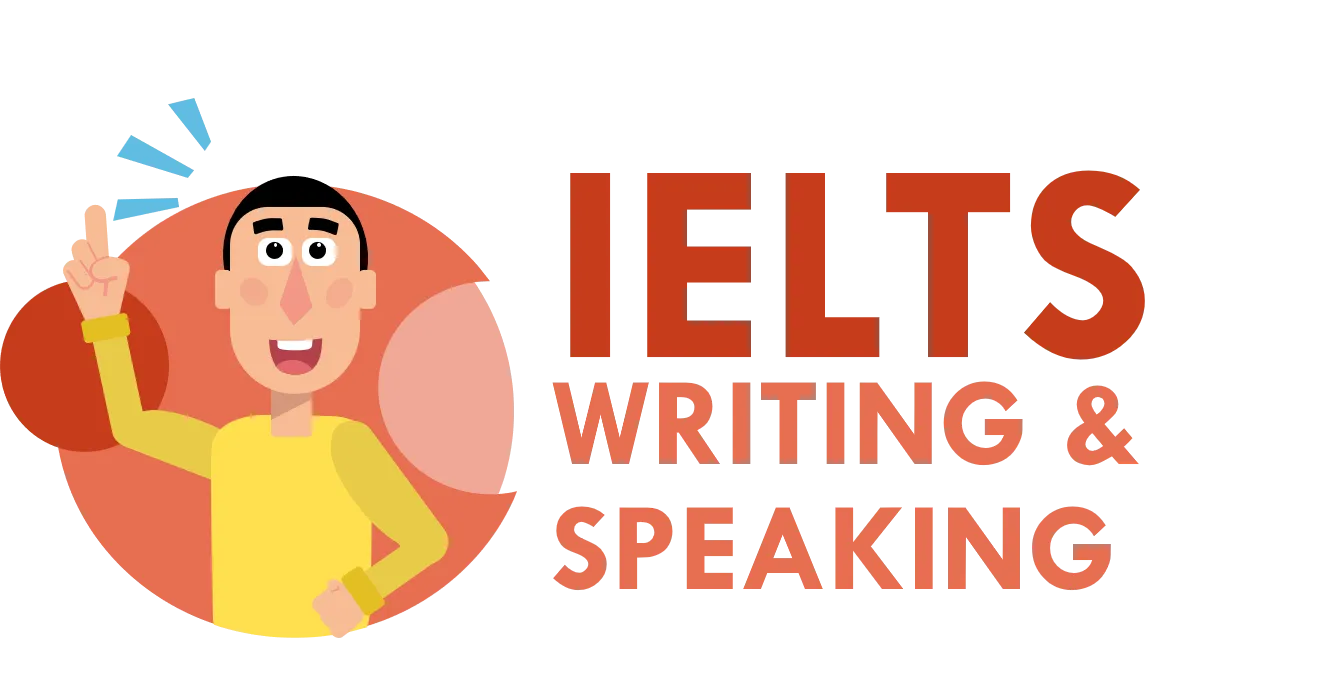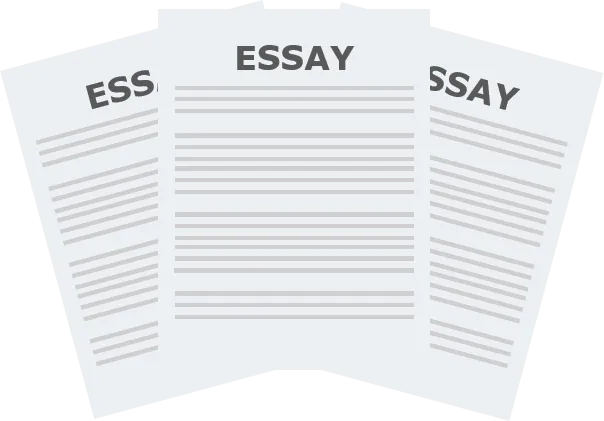Duration
1 hour
2 Exercises
Task 1 and Task 2
Task 1:
Analyzing a graphic, chart, table etc.
Task 2:
Writing an Essay response to a question
Scoring
the scoring goes from 0 to 9
IELTS Writing Overview (Academic)
The Writing exam takes place in a room where you are given the exam papers or even online. The whole exam lasts 1 hour all together. It is divided in 2 parts that you need to finish in that time as follows:
- Task 1 - Describe information from a graphic, chart, table, process, etc..
- You should finish this in about 20 minutes.
- You need to write at least 150 words.
- Task 2 - Write and essay on a given big, broad topic.
- You should finish this in about 40 minutes.
- You need to write at least 250 words.
Important notes
- The requirement for writing states "At least 150/250 words". This is the minimum not the requirement. You need to do more.
- Make sure you leave a few minutes for review and correction.
- You cannot change a question, so make sure you practice a lot of writing in advance.
- It is recommended to practice writing at least 30-40 essays and graphics before trying the exam, as you need experience with many topics and question types.
- Task 2 (Essay) has more weight than Task 1 (Graphic), and so you should spend more time on it.
IELTS WRITING Task 1
In Task 1 you will be given a paper with some kind of image of a graphic. Those can be a Pie Chart, A Bar Chart, a Line Graph, A Table, a Process following the production of something, a Map of a city or place or mixed between these. The task will ask you to report the most important information you can see on the picture. That can be differences, highs and lows, or trend between them. In general you should choose 2-3 key points and report those. Further:
DO's:
Learn the right structure. All of the graphics (except the process) are written in the same way. Learn a model you can do every time and stick to it.
Learn a lot of linking words and phrases. You will be reporting information, and so you will need to link those sentences with many different linking phrases like further, however,
Learn synonyms of the topics in the graphics. You will be reporting data, and you will be saying the same thing over and over again. You need to use different words (synonyms) to score higher.
Learn a lot of phrases for increase and decrease. There are many phrases you can use to report the data going up (rise, increase, jump) and going down (lower, decrease, plummet, crash). Use many of these.
DON'Ts:
Don't spend too long on this task. Try to keep it within 20 minutes. This task is not as important as the second one, and you shouldn't waste too much time on it.
Don't focus on reporting minor changes. The exercise is made to see if you can find the MOST important changes. Reporting on small changes in the data will reduce your score.
Don't write anything personal. The exercise wants you to report, like a journalist, without saying any opinions or personal ideas. Just report the data and move on.
Don't write too much and too little. The exercise wants you to write "At least 150 words". This is the minimum requirement. Because the task is a report, you should keep it short as well. So around 160-170 words is the perfect middle.
IELTS Writing Task 2 (Essay)
You can start Task 2 when you finish Task 1. You are given a big topic and you need to write an essay in response to that topic. Here you have the freedom to write as much as possible, following a strict structure of - introduction, paragraph 1, paragraph 2 and conclusion. You should spend around 40 minutes on this task. What's more you should:
DO's:
Write above 250 words. The task says at least 250, but that is the bare minimum. You should try to aim at 350 - 400, as that will make you score the highest.
Make a small plan. There are many topics that you may have to write about, and because of that, you should learn to make a small plan of action in 1 or 2 minutes. (or practice writing at least 30 - 40 essays before the exam)
Give unique examples and opinions. Everyone can write about Bill Gates and Microsoft or Steve Jobs and Apple. You should express unique opinions and be creative. Creativity is rewarded.
Write personal opinions. Many test takers make the mistake of not giving their own opinion. In other words they write formal, 3rd person essays. This will lower your score. You need to express YOUR views on the problem.
DON'Ts:
Don't write super formal. Technical words and too high vocabulary usage ( and too often) will make the essay hard to understand and will be scored lower. This is not a PHD dissertation, it is an opinion essay.
Don't repeat yourself. You should learn how to paraphrase (say something in 2-3 different ways). On top of that you should learn a lot of synonyms and avoid repeating your ideas in the 2 paragraphs.
Example ESSAY Topics:
Here are a few examples for essay topics. If you want to see many more click here.
Education:
"In the modern age, some people think it is unnecessary to teach children the skill of handwriting. To what extent do you agree or disagree?"
Technology and Science:
"Online shopping is now replacing shopping in store. Do you think it is a positive or negative development?"
Government:
"Some people believe that the government should give healthcare the first priority, and others believe that there are other more important priorities to spend tax payers money on. Discuss both views and give your opinion."
Media:
"Nowadays there are many television advertisements aimed at children. What are the effects of these advertisements on children? Should TV advertisements be controlled?"
Crime:
"In most countries, prison is an effective solution for the problem of crime. Some people think a more effective solution is to provide a better education. To what extent do you agree or disagree?"
International:
"The spread of multinational companies and the increase of globalization produces positive effects for everyone. To what extent do you agree or disagree?"
Culture:
"Nowadays some people have anti-social behavior and lack respect to others. What are the reasons for this? What are some solutions for this problem?"
Tourism:
"Many countries believe that international tourism has harmful effects. Why do they think so? What can be done to change their view?"
Environment:
"Some people believe that companies and individuals should pay to clear up the pollution they produced and that the government should not pay for it. To what extent do you agree or disagree?"
Health:
"Some people think everyone should be a vegetarian, because we do not need to eat meat to have a healthy diet. To what extent do you agree or disagree?"







